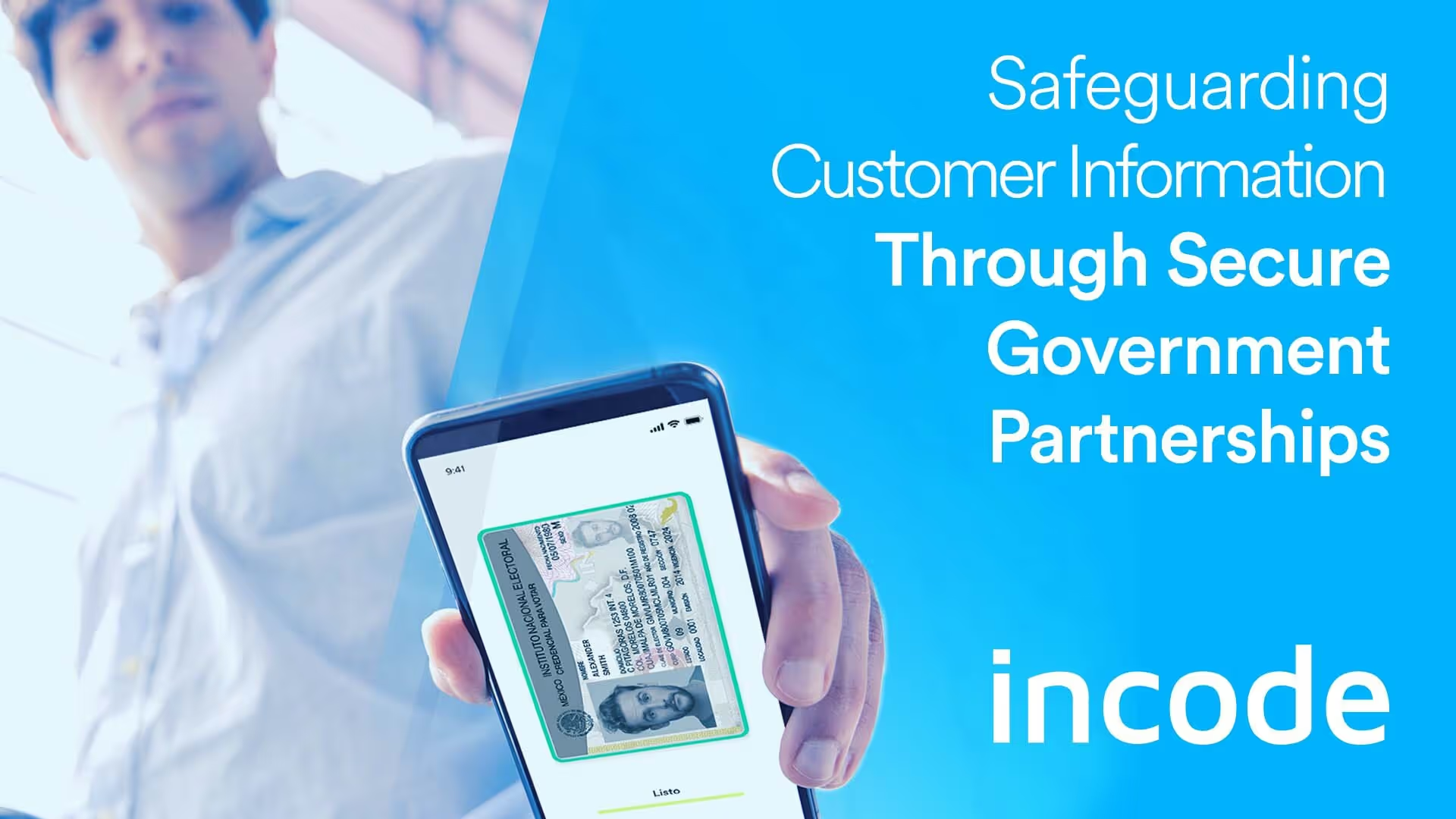Safeguarding Customer Information Through Secure Government Partnerships


Using biometrics for authentication and identification is safer than many traditional methods like passwords while offering ease-of-use advantages. For example, instead of requiring an in-person visit or scheduling a meeting with a representative, some financial institutions allow clients to open accounts remotely using biometric identity verification. Through their cell phone and the company’s app, a prospective client takes and uploads a picture of their ID, takes a selfie, and gets verified remotely.
However, many users still have privacy concerns and questions around the use of biometrics, particularly for remote services. What personal information is being accessed and stored? Is that information being shared with anyone else? Who?
In order to build trust, organizations, and the biometric technology partners they work with, must be transparent in how they are using consumer data. As a biometric identity verification provider, Incode works securely with government and public entities to safeguard customer data. An example of how we work with organizations is our relationship with the “National Electoral Institute” of Mexico, the Instituto Nacional Electoral (INE).
For some services, financial institutions in Mexico are required by the National Banking and Securities Commission (CNVB) to verify users against biometric data of that user from an official institution. This is where the INE comes into play.
The INE is a Mexican public agency responsible for overseeing local and federal elections. As an election coordinator, it holds voter registration information, which can include fingerprints and photographs of voters. The official institution that verifies identities, the INE also controls access to biometric information for identity verification from technology providers and financial institutions.
INE’s stance on biometric information sharing is very clear – INE does not share voter registration information, including biometrics, with any private company. However, INE can access and verify the status of a citizen’s records in the Electoral Roll and Nominal List of Voters themselves. They can also work with providers of facial recognition technologies for biometric authentication with required criteria including proof of life.
Incode acts as a technology provider between public organizations like the INE and financial institutions to securely verify identities. During onboarding or authentication, Incode asks public entity partners like INE to check whether an individual exists in their database, given a set of characteristics, like a biometric template. INE only returns whether there is a match – no data from the registry is exchanged. (This “yes or no” match answer is often returned as a percentage match. If the percentage is lower than some defined threshold, additional verification may be needed.)
Incode does not store or share user images, nor do we access user data from INE databases.
On the Incode side, user images are not stored either. Instead, Incode converts images into biometric templates, or more specifically in our case, facial templates. A biometric template is an encrypted, mathematical representation of someone’s face converted into a string of characters. Instead of faces, we store these biometric templates. Even if an encrypted template is stolen, a hacker cannot recreate a person’s image from it.
Incode does not store or share user images, nor do we access user data from INE databases.
On the Incode side, user images are not stored either. Instead, Incode converts images into biometric templates, or more specifically in our case, facial templates. A biometric template is an encrypted, mathematical representation of someone’s face converted into a string of characters. Instead of faces, we store these biometric templates. Even if an encrypted template is stolen, a hacker cannot recreate a person’s image from it.
At Incode, our mission is to build a world of trust through transparency and secure biometric identity verification. As a technology provider for over 30+ authorized financial institutions in Mexico, we form secure government partnerships like the one with INE to help financial institutions provide more services while keeping customer data safe.
Another example of building trust is our work with the Chamber of Deputies, where we facilitated a remote voting platform. Through our facial verification technology, we were able to expand voting access autonomously and anonymously. This was particularly important during COVID-19 while isolation orders were in place.
A company formed by Mexican talent and highly committed to the country’s innovation, we comply with the highest standards of data protection applicable in Mexico, as well as in all geographic regions where we do business. By reducing fraud and improving the end user experience, we facilitate and foster trusted relationships between organizations and their customers around the world.
To see how the Incode Omni identification platform works and keeps user information secure, reach out to schedule a demo.
Discover more articles, news and trends.